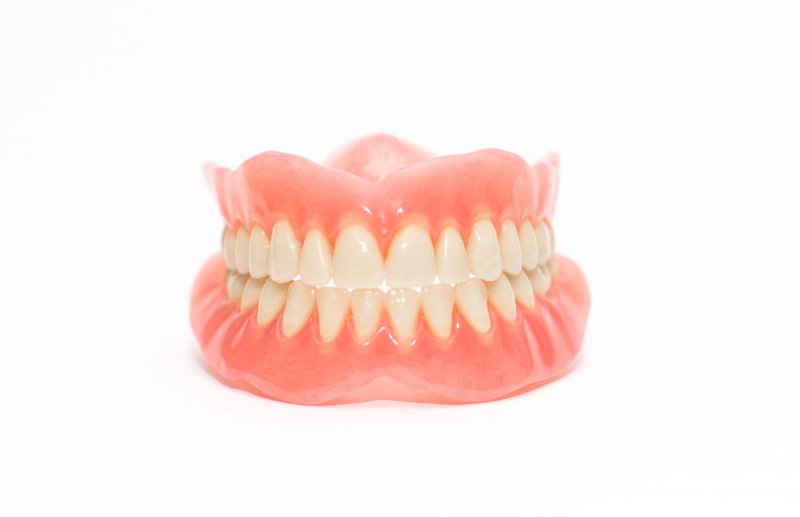
Dentures can be an excellent way to replace missing teeth that allow a patient to eat foods that were previously inedible. However, as fantastic and lifelike as they are, they cannot provide the same biting and chewing force as natural teeth. Some research finds that patients with dentures have less sufficient nutrition than the general population. Here’s why dentures might make it difficult for a patient to eat properly and how implant-supported dentures can resolve these issues.
Compromised Chewing
Chewing is the first step in the digestive process that serves to break food apart so it can be more easily processed by acids and enzymes. However, dentures cannot chew as thoroughly as natural teeth, meaning that people wearing them often swallow food without chewing it sufficiently, making it harder for the body to digest it. This limits the amount of nutrition that can be extracted from anything a person eats.
While dentures provide the broad grinding surface that works so well for chewing plant matter, they cannot provide the biting and tearing power needed for eating meat. Many people wearing dentures know that tougher meats like steak, pork chops, or anything eaten off the bone are difficult to chew. However, some find it possible to enjoy such foods after cutting them into smaller bites or by selecting softer cuts.
To further complicate matters, chewy or sticky foods like taffy, caramel, and sugary bubblegum can dislodge dentures during the chewing process. Similarly, chewing brittle foods like tortilla chips or peanut brittle can cause irritation by allowing small pieces to get stuck between the teeth or underneath the denture.
How Implant-Supported Dentures Can Help
Traditional dentures are held in place by suction, muscle control, and sometimes denture adhesive. Unfortunately, dentures held this way can slip, slide, or fall out of place, which can make chewing or speaking difficult. Fortunately, dental implants can more securely keep dentures in place.
To keep dentures in a fixed position, dental implants are surgically placed in the jawbone, where they fuse to the surrounding bone tissue through the natural process of osseointegration. This allows them to serve as a sturdy foundation and point of leverage for dentures connected to them at the gumline, giving them the ability to bite and chew more like real teeth.
Everyone wants a beautiful smile, but everyone should also be getting good nutrition. Implant-supported dentures can help people with extensive tooth loss eat the varied diet necessary for excellent long-term health. Consulting with your dentist can help determine if you are a good candidate.
About the Practice
Comal Dental provides excellent, reliable, and high-quality dentistry to the community of New Braunfels, TX. Led by Drs. Aaron Haag and Sarah Hansen, the staff is dedicated to improving smiles in a friendly and hassle-free environment. Areas of expertise include general, restorative, cosmetic, pediatric, and emergency dentistry in addition to denture treatments. For more information on implant-supported dentures, contact the office online or dial (830) 625-1515.
